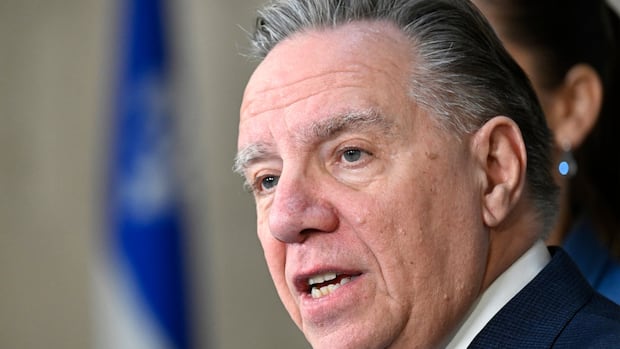Quebec Premier François Legault is warning that U.S. president-elect Donald Trump’s threatened tariffs would hurt not only the Canadian economy — but the U.S. economy as well.
In an op-ed Wednesday in the U.S. publication The Hill, Legault made the case that tariffs on Canadian imports would hurt “the American economy, many of its businesses and especially ordinary Americans by causing a new inflationary surge.”
“Ever since the free trade agreement signed by President Ronald Reagan, the economies of Quebec (to speak of what I know best) and the U.S. are so integrated that customs tariffs on our products would inflict severe self-harm on the American economy,” Legault wrote.
“Already, the threat of tariffs has caused a lot of uncertainty, hampering investment on both sides of the border.”
The letter comes ahead of a meeting Wednesday in Ottawa between Canada’s premiers and Prime Minister Justin Trudeau. Trump is set to take office on Jan. 20.
Economists have said the expected 25 per cent tariff would be devastating to the Canadian economy and put some crucial industries in jeopardy. Ontario Premier Doug Ford said Tuesday as many as 500,000 people in Ontario alone could be out of a job if a broad-based tariff scheme is implemented.
In the letter, Legault urged Trump to give Canada time to meet the president-elect’s stated demands, including increasing border security and controlling immigration, before imposing tariffs.
Legault said a levy of 25 per cent on exports from Canada and Mexico would reduce the U.S. GDP and drive up inflation.
As an example, a tariff on aluminum, a key Quebec export, would drive up the cost of “beer cans, car parts, airplane parts and a host of other products for American consumers and businesses,” Legault said.
He also noted that Quebec exports military aviation supplies to the United States, and that hydroelectricity from Quebec gives New York “clean, dependable and cheap electricity.”
“It lowers the cost of energy for Trump Tower, to give just one example,” he wrote.
“Canada will not become the 51st state in the union, but our economies are so intertwined that in terms of trade, we already have a customs union.”


